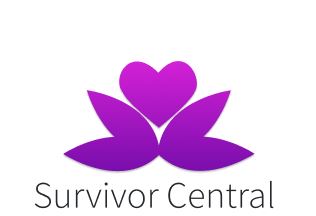All At Your Fingertips
Scroll down for explanation on what each resource means.
To find the actual resources near you, click the button below to start answering questions to get your own personalized list:

Medical Resources
Free services provided to you by medical staff and/or advocacy centers to help support your health and improve your quality of life.
Sexual Assault Evidence Collection
If you report within 72 hours, a sexual assault evidence collection kit collects vital evidence from your body that you won’t have access to later if you don’t; they are a very detailed and through medical examination of your body to try to find any hair/semen/DNA to help collect evidence against your abuser. Typically, after giving information on your medical history, you stand on a long sheet of paper and undress (to catch any hair or fiber evidence), have your clothes collected for labratory evidence to identify any DNA, hair, or body fluids from your abuser, and have a trained sexual assault nurse examiner conduct a physical examination of your body. ANy bruises and injuries may be photographed to collect evidence. Obtaining a sexaul assault evidence collection test can be taxing and invasive, but are extremely helpful in buildinga legal case against your abuser.
Psychological Counselling/Therapy
Some sexual assault/domestic violence agencies will have a trained psychologist or may work closely with hospitals that have trained psychiatrists to help support survivors of abuse. Some organizations have specialized counselling for: families, children, LGBTQIA+ individuals, and more facing sexual/domestic violence. These counsellors are highly trained and will never push you more than you’re willing to give; they’re ultimately a tool for you to emotionally cope with what’s happened to you and move forward from your trauma to live a happy and fulfilled life.
HIV/AIDS Testing and Prophylaxis
Prophylaxis means taking a medicine to prevent disease. Because of the time it takes to test for HIV, it’s better for doctors to “assume the worst-case” and assume you have HIV (even though this is statistically very unlikely). These medications will require follow up that your doctor can speak to you about. These medications may cause adverse side effects, but can be important to keeping you safe from STDs and other diseases
Legal Support
Free legal services provided by advocate agencies, pro bono law firms, and/or legal agencies to support your legal rights
Filing a Report to the Police
Reporting to the police can help instigate immediate action and help prevent others in your community from being targeted by your abuser. It’s important to keep in mind that police officers may not be trained to be truma informed and their role is to investigate — so they may ask you invasive questions which may make you feel like they don’t believe you, but they must do this to definitively confirm and convict your abuser. Although uncomfortable, this will only strengthen your legal case against your abuser moing forward. To make this process easier for you, you can get a trained Law Enforcement Advocate (see below) to guide you through your entire legal journey.
Law Enforcement Advocates (LEA's)
Law Enforcement Advocates are not police. They work for agencies that focus on crimes such as domestic violence and sexual assault. LEAs are advocates and work with you as you report and go through the legal process. LEAs are able to update you on your case, be there with you when you report, and explain your options to you. In states like Rhode Island, there is an LEA for
every police department.
Temoporary Restraining Order (TRO)
This an option if the courts are closed and you need a RO before they open again. It is similar to a restraining order but is temporary and only lasts until the courts open. This can be done through the police and by the Judge on call. This RO would not be active as soon as courts opened again
No Contact Order (NCO)
A no contact order is put in place once someone is arrested for domestic violence or sexual assault. This NCO would live and die with the case. This means if charges were dropped, they were found not guilty, or they were released from prison, the order would no longer be active. (You can get BOTH a TRO and a NCO!)
Pro Bono Legal Services
Several lawyers and law agencies will offer pro bono (free) legal services for survivors like you. They do this to both give back to their community and support people in need of legal support in their longwinded and, oftentimes, confusing journey in seeking justice.
Suing through a Criminal vs Civil Case
Criminal cases happen when someone breaks a law, or commits a criminal offense, which typically results in jail time. Civil cases handle almost all other disputes, and typically aim for some sort of recovery, like financial retribution.
A criminal case is led by a prosecuting attorney and filed by the government. A civil case is filed by an individual/corporation against another individual/corporation.
Both involve trial work and arguing cases in front of juries presided over by a judge. But with a criminal case, you can get your abuser arrested, while with a civil case, you can get your abuser to legally owe you something, like money. Although money can never take away the pain your abuser has caused you, it can at least help you seek additional therapy/relocation/days off needed to start that process.
Safety Planning
Coming Soon!
Resource Explanations
Learn about what every resource available to you means.

